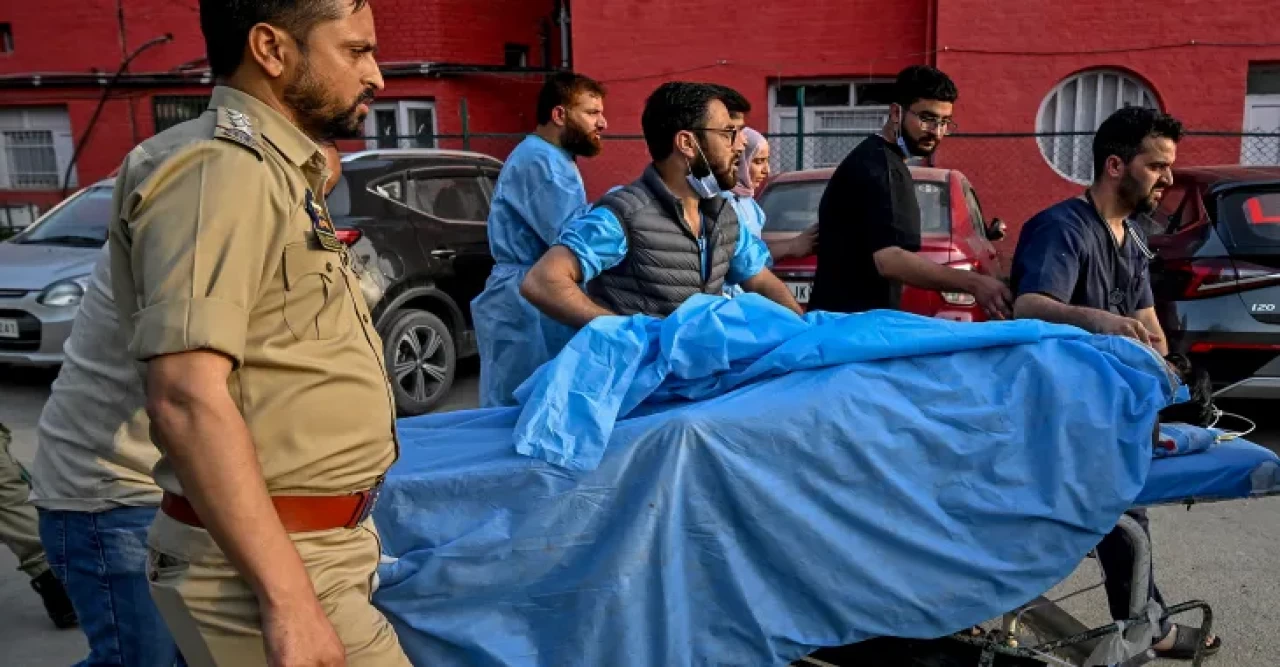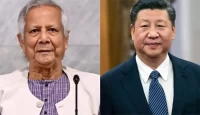Pamelia Riviere
The recent news regarding the horrific killings in Kashmir is both tragic and alarming, particularly if investigations confirm the involvement of Pakistan in orchestrating these attacks. Such incidents underscore the persistent threat posed by cross-border terrorism, which not only endangers lives but also raises serious concerns about regional stability and the potential for escalating tensions between India and Pakistan. A relatively obscure militant organization known as The Resistance Front has claimed responsibility for the assault via social media, expressing deep dissatisfaction with "outsiders" who have settled in the area, contributing to what they perceive as a detrimental “demographic change.” They did not provide any credible proof, and CNN has been unable to verify their assertion independently. CNN sources indicated that officials are aware of the group's claim. However, they emphasized that the investigation is still ongoing and evolving. As of Wednesday, authorities are diligently conducting forensic medical examinations on the victims to establish the cause of death and gather evidence, while also making logistical arrangements for transporting the deceased, along with their bereaved families, to their hometowns for proper funerals.
They did not provide any credible proof, and CNN has been unable to verify their assertion independently. CNN sources indicated that officials are aware of the group's claim. However, they emphasized that the investigation is still ongoing and evolving. As of Wednesday, authorities are diligently conducting forensic medical examinations on the victims to establish the cause of death and gather evidence, while also making logistical arrangements for transporting the deceased, along with their bereaved families, to their hometowns for proper funerals.
India has a long history of accusing Pakistan of providing sanctuary to Islamist militant groups targeting Kashmir—allegations that Islamabad has consistently denied. The region, which both nations claim in full but control in parts, has regularly experienced escalations of conflict due to militant attacks. Notably, in 2019, India retaliated with airstrikes within Pakistan following a terrorist attack that resulted in the death of 40 Indian paramilitary personnel—in a statement reported by CNN, a representative from Pakistan’s Ministry of Foreign Affairs expressed condolences to the victims, lamenting the loss of lives, particularly tourists, in an attack that occurred in the Anantnag district, one of the most controversial areas within the Indian-administered territory of Jammu and Kashmir.
Prime Minister Modi’s handling of these sensitive issues mirrors strategies previously employed by former President Trump in the United States, steering India into a precarious state of internal and external turmoil. His administration policies, especially concerning managing and overseeing mosque wakf properties (the charitable endowments often used to support community and religious services), have raised alarms among various groups. Are the West Bengal riots and Kashmir killings interrelated issues? There is growing concern that this trend reflects politically motivated maneuvering that may be likened to political terrorism, threatening to undermine communal harmony and incite further sectarian unrest throughout the country.
These developments pose a serious threat to the intricate fabric of Indian society and jeopardize its diplomatic relationships with neighbouring countries. The potential for increased polarization within communities is troubling; it could lead to more outbreaks of violence and thwart diplomatic efforts aimed at fostering peace, cooperation, and understanding in the region. Significantly, India has publicly stated a zero-tolerance policy for terrorism, a stance that has intensified following the recent brutal killing of innocent civilians in Kashmir. This has raised significant concerns about the possibility of communal riots and unrest across the country. In response, the Indian government has announced a series of strong measures directed at Pakistan.
These include the immediate suspension of the Indus Water Treaty, a crucial agreement governing the distribution of river waters, along with the cancellation of all visas previously issued to Pakistani nationals, effectively restricting their movement into India. Furthermore, the Indian administration has initiated steps to expel Pakistani military advisers currently based in New Delhi, giving them a one-week ultimatum to vacate the country. These diplomatic maneuvers are intended to convey India seriousness about addressing security threats. However, the possibility of military action looms large and is particularly concerning. opttions reportedly under consideration include cross-border strikes targeting suspected terrorist training camps, precision airstrikes on identified militant targets, drone strikes against insurgents, or escalated anti-terror operations within Kashmir itself. Despite these provocative measures, Pakistan continues to deny any involvement in the recent violence, which escalates the atmosphere of tension between the two nuclear-armed nations.
In this delicate scenario, it is crucial for both Indian citizens and the armed forces to exercise restraint and to avoid punitive measures against the Muslim community in India, as they could become targets in the backlash following these events. The stakes are incredibly high, considering both nations are armed with nuclear weapons, which heightens the risks associated with any escalation of conflict and India's retaliation plan. A commitment to diplomatic dialogue is essential to resolve the ongoing turmoil arising from these tragic events. It is vital to identify the perpetrators of terrorism and ensure they are brought to justice while simultaneously safeguarding the broader population from the harsh consequences of conflict.
People across the globe extended their compassion and empathy to the people of Kashmir, who have endured profound suffering and heartbreaking loss of their loved ones due to ongoing violence and conflict in the region. My deepest condolences go out to the victims and their families, who are grappling with unimaginable grief and trauma. It is imperative that justice prevails for those who perpetrated this heinous act, as accountability is essential for healing and restoring peace to a community that has endured too much pain. Together, peace believers must advocate for their rights and support their quest for justice and reconciliation.









.jpg)

